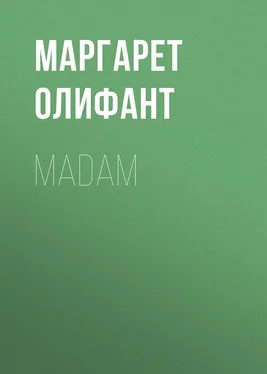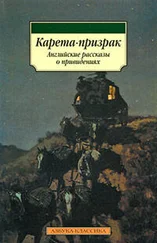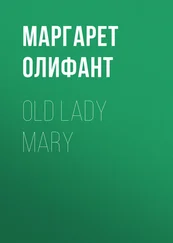Маргарет Олифант - Madam
Здесь есть возможность читать онлайн «Маргарет Олифант - Madam» — ознакомительный отрывок электронной книги совершенно бесплатно, а после прочтения отрывка купить полную версию. В некоторых случаях можно слушать аудио, скачать через торрент в формате fb2 и присутствует краткое содержание. Жанр: foreign_prose, literature_19, foreign_antique, на английском языке. Описание произведения, (предисловие) а так же отзывы посетителей доступны на портале библиотеки ЛибКат.
- Название:Madam
- Автор:
- Жанр:
- Год:неизвестен
- ISBN:нет данных
- Рейтинг книги:5 / 5. Голосов: 1
-
Избранное:Добавить в избранное
- Отзывы:
-
Ваша оценка:
- 100
- 1
- 2
- 3
- 4
- 5
Madam: краткое содержание, описание и аннотация
Предлагаем к чтению аннотацию, описание, краткое содержание или предисловие (зависит от того, что написал сам автор книги «Madam»). Если вы не нашли необходимую информацию о книге — напишите в комментариях, мы постараемся отыскать её.
Madam — читать онлайн ознакомительный отрывок
Ниже представлен текст книги, разбитый по страницам. Система сохранения места последней прочитанной страницы, позволяет с удобством читать онлайн бесплатно книгу «Madam», без необходимости каждый раз заново искать на чём Вы остановились. Поставьте закладку, и сможете в любой момент перейти на страницу, на которой закончили чтение.
Интервал:
Закладка:
“You are very kind to take so much trouble; but I am afraid you have over-exerted yourself,” she cried.
This made the young man blush more deeply still.
“I am not very strong,” he said half indignantly, “but not so weak as that.” There was a tone of petulance in the reply; and then he added, “Whatever trouble it might be is more than repaid,” with a somewhat elaborate bow.
What did it mean? The face was refined and full of expression, but then probably he was not a gentleman, Rosalind thought, and did not understand. She said hurriedly again, “I am very much obliged to you,” and went on, a little troubled by the event. She heard him make a few steps after her. Was he going to follow? In her surprise it was almost on her lips to call back William from the farm.
“I beg your pardon,” said the stranger, “but may I take the liberty of asking how is Mr. Trevanion? I heard he was worse last night.”
Rosalind turned round, half reassured.
“Oh, do you know papa?” she said. “He has been very ill all night, but he is better, though terribly exhausted. He has had some sleep this morning.”
She was elevated upon the log, which she had begun to cross, and thus looked down upon the stranger. If he knew her father, that made all the difference; and surely the face was one with which she was not unfamiliar.
“I do not know Mr. Trevanion, only one hears of him constantly in the village. I am glad he is better.”
He hesitated, as if he too was about to mount the log.
“Oh, thank you,” said Rosalind, hurrying on.
CHAPTER XII
“To whom were you talking, Rosalind?”
“To—nobody, Uncle John!” she said, in her surprise at the sudden question which came over her shoulder, and, turning round, waited till he joined her. She had changed her mind and come back after she had crossed the water upon the impromptu bridge, with a half apprehension that her new acquaintance intended to accompany her to the village, and had, to tell the truth, walked rather quickly to the park gates.
“But I met the man—a young fellow—whose appearance I don’t know.”
“Oh! I don’t know who it was either; a gentleman; at least, I suppose he was a gentleman.”
“And yet you doubt. What cause had you to doubt?”
“Well, Uncle John, his voice was nice enough, and what he said. The only thing was, he paid me a sort of a—compliment.”
“What was that?” said John Trevanion, quickly.
“Oh, nothing,” said Rosalind, inconsistently. “When I said I was sorry he had taken the trouble, he said, ‘Oh, if it was any trouble it was repaid.’ Nothing at all! Only a gentleman would not have said that to a girl who was—alone.”
“That is true; but it was not very much after all. Fashions change. A few generations ago it would have been the right thing.” Then he dropped the subject as a matter without importance, and drew his niece’s arm within his own. “Rosie,” he said, “I am afraid we shall have to face the future, you and I. What are we to do?”
“Are things so very bad, Uncle John?” she cried, and the tears came welling up into her eyes as she raised them to his face.
“Very bad, I fear. This last attack has done him a great deal of harm, more than any of the others; perhaps, because, as the doctor says, the pace is quicker as he gets near the end, perhaps because he is still as angry as ever, though he is not able to give it vent. I wonder if such fury may not have some adequate cause.”
“Oh, Uncle John!” Rosalind cried; she clasped her hands upon his arm, looking up at him through her tears. He knew what was the meaning in her tone, though it was a meaning very hard to put into words. A child cannot say of her father when he is dying that his fury has often been without any adequate cause.
“I know,” he said, “and I acknowledge that no one could have a more devoted nurse. But whether there have not been concealments, clandestine acts, things he has a right to find fault with—”
“Even I,” said Rosalind, hastily, “and I have nothing to hide—even I have had to make secrets from papa.”
“That is the penalty, of course, of a temper so passionate. But she should not have let you do so, Rosalind.”
“It was not she. You think everything is her fault; oh, how mistaken you are! My mother and I,” cried the girl, impetuously, “have no secrets from each other.”
John Trevanion looked into the young, ingenuous countenance with anxiety: “Then, Rosalind,” he said, “where is it that she goes? Why does she go out at that hour of all others, in the dark? Whom does she meet? If you know all this, I think there cannot be another word to say; for nothing that is not innocent would be intrusted to you.”
Rosalind was silent. She ceased to look at him, and even withdrew her clasping hands from his arm.
“You have nothing to say? There it is: she has no secrets from you, and yet you can throw no light on this one secret. I have always had a great admiration and respect for your stepmother, Rosalind.”
“I wish you would not call her my stepmother! It hurts me. What other mother have I ever known?”
“My dear, your love for her is a defence in itself. But, Rosalind, forgive me, there is some complication here. If she will not explain, what are we to do? A mystery is always a sign of something wrong; at least, it must be taken for something wrong if it remains unexplained. I am, I hope, without passion or prejudice. She might have confided in me—”
“If there was anything to confide,” Rosalind said under her breath. But he went on.
“And now your father has sent for his lawyer—to do something, to change something. I can’t tell what he means to do, but it will be trouble in any case. And you, Rosalind—I said so before, you—must not stay here.”
“If you mean that I am to leave my mother, Uncle John—”
“Hush! not your mother. My dear, you must allow others to judge for you here. Had you been her child it would have been different: but we must take thought for your best interests. Who is that driving in at the gate? Why, it is Blake already. I wonder if a second summons has been sent. He was not expected till to-morrow. This looks worse and worse, Rosalind.”
“Uncle John, if you will let me, I will run in another way. I—don’t wish to meet Mr. Blake.”
“Hallo, Rosalind! you don’t mean to say that Charley Blake has ever presumed— Ah! this comes of not having a mother’s care.”
“It is nothing of the kind,” she cried, drawing her hand violently from his arm. “He hates her because she never would— Oh, how can you be so cruel, so prejudiced, so unjust?” In her vehemence Rosalind pushed him away from her with a force which made his steady, middle-aged figure almost swerve, and darted across the park away from him just in time to make it evident to Mr. Blake, driving his dog-cart quickly to make up to the group in advance, that it was to avoid him Miss Trevanion had fled.
“How is he?” was the eager question he put as he came up to John Trevanion. “I hope I am not too late.”
“For what? If it is my brother you mean, I hear he is a little better,” said John, coldly.
“Then I suppose it is only one of his attacks,” the new-comer said, with a slight tone of disappointment; not that he had any interest in the death of Mr. Trevanion, but that the fall from the excitement of a great crisis to the level of the ordinary is always disagreeable. “I thought from the telegram this morning there was no time to lose.”
“Who sent you the telegram this morning?”
“Madam Trevanion, of course,” said the young man.
This reply took John Trevanion so much by surprise that he went on without a word.
Читать дальшеИнтервал:
Закладка:
Похожие книги на «Madam»
Представляем Вашему вниманию похожие книги на «Madam» списком для выбора. Мы отобрали схожую по названию и смыслу литературу в надежде предоставить читателям больше вариантов отыскать новые, интересные, ещё непрочитанные произведения.
Обсуждение, отзывы о книге «Madam» и просто собственные мнения читателей. Оставьте ваши комментарии, напишите, что Вы думаете о произведении, его смысле или главных героях. Укажите что конкретно понравилось, а что нет, и почему Вы так считаете.












